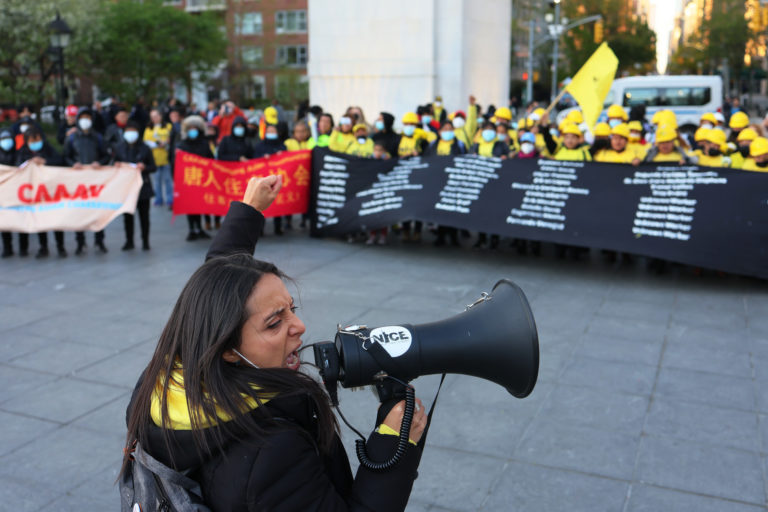
Ethan Borrasso is a student at Harvard Law School and a member of the Labor and Employment Lab.
On July 3rd, 2021, reports surfaced that the Department of Justice’s antitrust division was investigating the Overwatch League, a groundbreaking professional E-sports league based on Activision Blizzard’s hugely successful Overwatch game. The probe hinges on the league’s salary cap, which likely violates the 1890 Sherman Antitrust Act. Traditional sports, such as the NFL and NBA, get around such violations by receiving a non-statutory labor exemption, which is bargained for and agreed on by the professional league and the players union. However, an artificial cap on player wages is, legally, anti-competitive without a formal union and collective bargaining agreement. With the investigation ongoing, this may be the time for the first bona fide E-sports labor union.
E-Sports and The Overwatch League
E-sports is a booming industry. With 2021 revenues expected to surpass $1 billion and an average monthly viewership of over 26 million people, the success of competitive gaming cannot be overstated. Spearheading this growth is Activision Blizzard’s massively popular team-based shooter, Overwatch. Released in 2016, Overwatch became an instant hit, surpassing 50 million players in 2020 and having an average concurrent player base of 800,000 players in June 2021.
Driving the franchise’s success is the Overwatch League, a first-of-its-kind city-based professional league. The structure is meant to mimic traditional sports with a home and away game format. The initial buy-in to the League was set at $20 million per team and has since risen. The League makes and distributes motney in a variety of ways. Using sponsors, advertisements, and even in game events, Activison Blizzard can supply large prize pools for winning teams. Ticket sales and merchandise will bring in even more revenue post COVID-19. Each Overwatch team has a roster of up to 12 players who earn a minimum salary of $50,000 per year with benefits. Some of the top players earn more than six-figures annually. The inaugural season grand finals, broadcasted on ESPN, saw the London Spitfire earn a championship and $1 million in winnings.
Expansion in 2021 has slowed down due to the pandemic, but viewership continues to rise. In May, the Overwatch League reported an average of 113,000 viewers per minute, representing a 79% growth from the 2020 season. Even though the League has seen enormous success, it is not without its controversies. The latest being the Department of Justice’s investigation into the league’s use of a salary cap. However, this investigation, coupled with the success of the League, could lead to another E-sports first. The establishment of a formally recognized players union.
DOJ Investigation
The DOJ investigation centers on the League’s salary cap to limit player wages and a subsequent “competitive balance tax” if the team goes over this limit. Reports suggest the current salary cap is set at $1.6 million per team. A leaked 2019 memorandum from the league detailing player housing and meal requirements was the first known mention of this competitive balance tax by Activision Blizzard and undoubtedly raised a few eyebrows at the Department of Justice.
The Overwatch League competitive balance tax is a way to monitor and promote competitiveness among the teams. Teams are held to the $1.6 million limit and can only pay their players up to that amount. Anything spent beyond the cap is reportedly matched in payments to the league. The funds are then redistributed to teams as a means of competitive balance. Despite the valid reasons for the salary cap, this type of structure violates the Anti-trust Act.
Unions and Salary Caps
A central issue to this investigation is the Overwatch League’s lack of a formal union. In traditional sports, salary caps are a significant issue in the bargaining between the players and teams and generally benefit teams more. Players, who are limited in individual salary negotiations, cannot bargain for a salary that would exceed the cap. Even if the team is operating at a significant profit, the players’ wages will remain set. Additionally, this prevents higher net worth organizations from outbidding rivals solely because they have more money. Salary caps have been a focal point of many player strikes and lockouts throughout the decades.
While the salary cap benefits the teams, the players receive other benefits during negotiations. For instance, the NFL and NFLPA (the union representing the players) agreed to a new collective bargaining agreement (CBA) that runs through the 2030 season. In the new CBA, players received essential benefits:
- A larger share of league revenue
- A “Media Kicker” on additional profits from a 17-game regular season
- A percentage of the income from legal gambling in stadiums
- An immediate bump in minimum pay
- Expanded health benefits for former players
Collective bargaining is a long series of compromises that benefit both the players and the teams. Salary caps have always been a central factor in these negotiations. The players of the Overwatch League, however, are getting the worst of both worlds. Their wages are artificially capped, and they do not receive any of the benefits from a typical collective bargaining process.
Solutions going forward
Regardless of the penalties or fines that the League will inevitably end up paying, there appear to be only two options going forward; repeal the salary cap or form the first E-sports players union.
Repealing the current salary cap may solve this problem in the short term, but the long-term effects could end up doing more damage to the League. Even though setting a cap on player wages is legally anti-competitive, it does serve an essential purpose. A salary cap promotes league balance. If teams were free to spend unlimited capital to acquire the best players, high net worth franchises would dominate the league and buy championships. In a growing E-sport, this imbalance could drive down viewership and interest. To put this into perspective, Misfits Gaming owns the Florida Mayhem and has an estimated net worth of $175 million as of 2019. Meanwhile, Robert Kraft, owner of the Boston Uprising, has an estimated net worth of almost $7 billion. Financially, ownership groups are not operating on the same playing field.
Instead, the Overwatch league players should consider forming a union and keep the salary cap and accompanying benefits. From the perspective of the players, this would be a huge victory. On top of negotiating salaries, players would collectively bargain on improved living arrangements, better health care and retirement plans, contract security, and other types of support a union contract provides. It would also be a win for the League and Activision Blizzard itself. The League could implement the desired salary cap and keep Overwatch competitive. The positive publicity from taking an active role in supporting their players would also be noteworthy. Finally, a players union would benefit E-sports in general by adding some much-needed legitimacy. While immensely popular and lucrative, E-sports has not yet gained the mainstream appeal of traditional sports. With colleges offering millions in scholarship money and the revenue generated from streaming sites such as Twitch and YouTube, a union could be the missing piece that makes professional video games a viable career option.










Daily News & Commentary
Start your day with our roundup of the latest labor developments. See all
February 27
The Ninth Circuit allows Trump to dismantle certain government unions based on national security concerns; and the DOL set to focus enforcement on firms with “outsized market power.”
February 26
Workplace AI regulations proposed in Michigan; en banc D.C. Circuit hears oral argument in CFPB case; white police officers sue Philadelphia over DEI policy.
February 25
OSHA workplace inspections significantly drop in 2025; the Court denies a petition for certiorari to review a Minnesota law banning mandatory anti-union meetings at work; and the Court declines two petitions to determine whether Air Force service members should receive backpay as a result of religious challenges to the now-revoked COVID-19 vaccine mandate.
February 24
In today’s news and commentary, the NLRB uses the Obama-era Browning-Ferris standard, a fired National Park ranger sues the Department of Interior and the National Park Service, the NLRB closes out Amazon’s labor dispute on Staten Island, and OIRA signals changes to the Biden-era independent contractor rule. The NLRB ruled that Browning-Ferris Industries jointly employed […]
February 23
In today’s news and commentary, the Trump administration proposes a rule limiting employment authorization for asylum seekers and Matt Bruenig introduces a new LLM tool analyzing employer rules under Stericycle. Law360 reports that the Trump administration proposed a rule on Friday that would change the employment authorization process for asylum seekers. Under the proposed rule, […]
February 22
A petition for certiorari in Bivens v. Zep, New York nurses end their historic six-week-strike, and Professor Block argues for just cause protections in New York City.